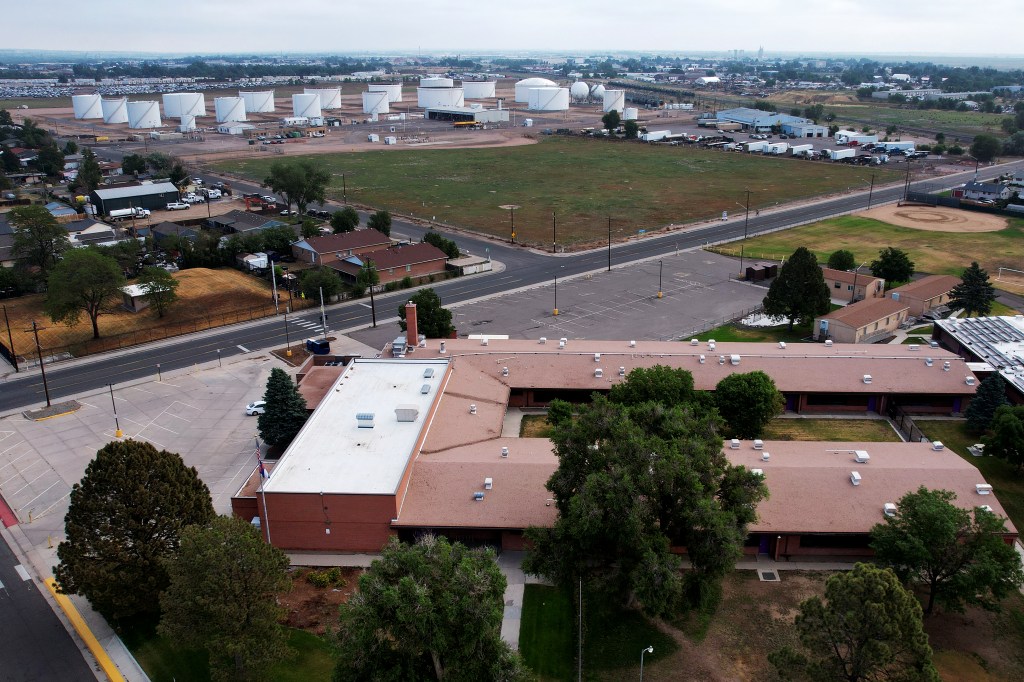Earlier this month, Colorado’s oil and gas regulatory agency, the Energy and Carbon Management Commission (ECMC), released draft rules to change how they approve or deny oil and gas projects. These draft rules fall far short of meeting the ECMC’s mission to regulate oil and gas development “in a manner that protects public health, safety, welfare, the environment and wildlife.”
In September, the ECMC has yet another opportunity to fulfill its obligation to protect Colorado’s communities. But yet again, it appears the interests of the oil and gas industry are being prioritized over the health of Colorado’s communities.
As members of Colorado’s Environmental Justice Action Task Force, we call on the ECMC and Gov. Jared Polis to strengthen these rules to hold oil and gas polluters accountable, stopping the rampant oil and gas pollution that takes place in Colorado’s disproportionately impacted communities.
We represent two of 22 Environmental Justice Action Task Force members appointed in 2021 and acted as co-chairs on the Environmental and Equity Cumulative Impact Analysis subcommittee. The task force worked with community members and state partners extensively for nearly a year, eventually developing a set of recommendations aimed at addressing environmental injustice in Colorado. The ECMC’s latest draft rules lack several essential provisions needed to shield disproportionately impacted communities from the harmful effects of oil and gas development.
We’re not the only task force urging the ECMC to strengthen these draft rules. Western Resource Advocates Building Decarbonization Manager Meera Fickling, Colorado Department of Public Health and Environment Health Equity Commissioner Hilda Nucete, GreenLatinos Colorado State Director Ean Thomas Tafoya and Chair of the Sangre de Cristo Group of the Sierra Club Jamie Valdez, all support the opinions expressed in this piece.
The draft rules lack protections for neighborhoods near oil and gas operations, especially those already struggling with pollution and related health problems like asthma, cancer or autoimmune disorders. By failing to require oil and gas activities to take place at least 2,000 feet from disproportionately impacted communities and limiting public involvement in the permitting process, the state is prioritizing industry profits over people’s safety and well-being.
By failing to protect Colorado communities, a crucial part of ECMC’s mission, these draft rules perpetuate environmental racism as the many of the Colorado communities that are most impacted by oil and gas pollution are communities of color and low-income communities. According to Protégete’s Colorado Latino Climate Justice Policy Handbook, Colorado counties with high Latino populations contain a disproportionately high number of oil and gas wells and a disproportionately low number of air quality monitoring stations. These proposed rules ignore the spirit of environmental justice and are not in line with the final recommendations we made as members of the Environmental Justice Action Task Force.
Our final recommendations included that state agencies should use the definition of disproportionately impacted communities (DICs) explained in detail here. But the ECMC’s recent draft rules prioritize a different definition, labeled as cumulatively impacted communities (CICs), that excludes many areas historically burdened by oil and gas activities and almost all of Colorado’s Western Slope communities. The ECMC is not the only state agency using CICs. Several environmental organizations are involved in ongoing litigation with Colorado’s Air Quality Control Commission over the use of the CIC term, which encompasses only a fraction of the communities that are included in the DIC definition.
The ECMC should use the definition of DICs that were recommended by the task force and used by state lawmakers. This definition ensures that the communities most affected by environmental injustices are accurately identified and protected.
Additionally, the ECMC should strengthen its proposed draft rules in three ways:
• Close loopholes to ensure no new oil and gas operations are allowed within 2,000 feet of DICs, unless every resident who lives within that radius gives informed consent
• Mandate air quality testing in a community before approving new oil and gas permits, and deny the permits if the oil and gas operations would push air pollution to unhealthy levels
• Set and enforce strict limits on ozone-causing, toxic air pollutants during the summer months, typically when air quality is the worst along Colorado’s Front Range
Everyone in Colorado deserves the right to live in a healthy and safe environment. Rather than eliminating oil and gas pollution, the latest draft rules by the ECMC provide concessions to oil and gas polluters and ignore community concerns. This is not acceptable. Governor Polis and the ECMC must protect and listen to the voices of the communities most affected by environmental racism, and hold oil and gas polluters accountable.
Renée Chacon is co-founder and executive director of Womxn from the Mountain and serves as the Ward III Councilmember on the Commerce City Council. Beatriz Soto is the director of Protégete at Conservation Colorado and co-chair of the Clean Water for All Colorado Coalition.
Sign up for Sound Off to get a weekly roundup of our columns, editorials and more.
To send a letter to the editor about this article, submit online or check out our guidelines for how to submit by email or mail.
